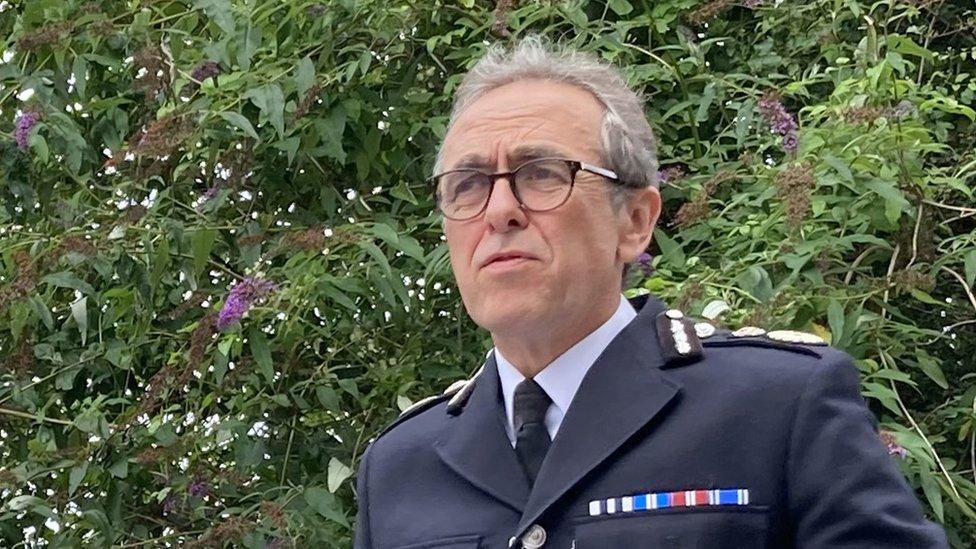Guns returned to dozens of domestic abuse suspects, police data shows
- Published
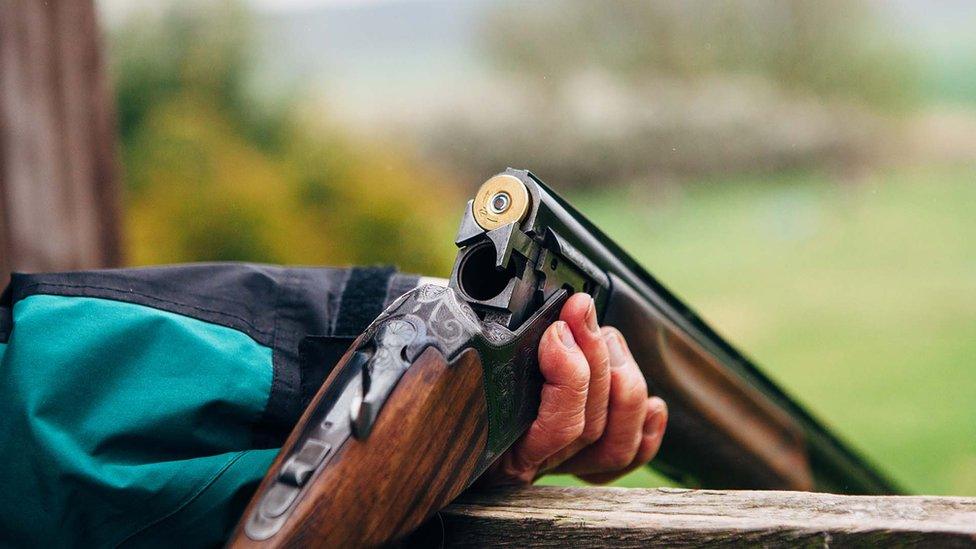
Data has shown 306 firearms licences and 982 shotgun licences were revoked in 2020/21
Dozens of gun-owning domestic abuse suspects have had their weapons returned by police over the past three years, the BBC can reveal.
The data has been released six months after a man with a violent history shot dead five people in Plymouth shortly after police gave him his gun back.
Force chiefs said domestic violence was one of the most serious factors it considers before returning a licence.
But Women's Aid said the figures showed an "inexcusable tolerance" of abusers.
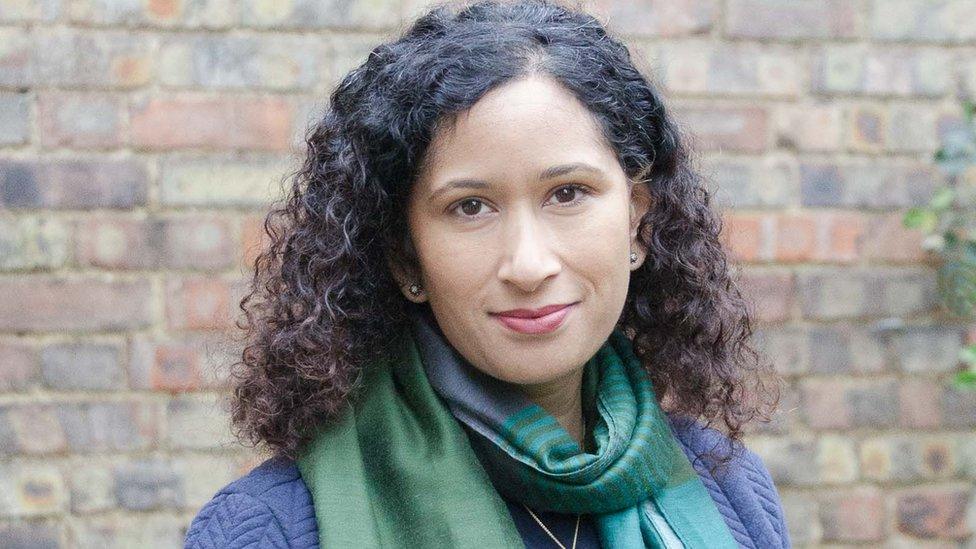
Farah Nazeer called for the BBC's findings to be investigated by the government
Farah Nazeer, the charity's chief executive, said there were "countless instances of people shrugging off domestic abuse as a less serious offence".
The BBC found more than a quarter of licences returned between 2019 and 2021 went to people who had faced allegations of domestic abuse.
Ms Nazeer said this needed to be investigated by police and the government, and called for an "automatic ban on returning gun licenses to those accused of domestic abuse".
"Would society accept guns being put back in the hands of burglars? Of muggers? In cases of domestic abuse, more often than not, the perpetrator lives in the same residence as the survivor," she said.
"Even if the perpetrator hasn't ever used the gun against their partner, just possessing the weapon, its presence in the house, is a form of intimidation and control."
Forty-one of the 44 police forces in the UK that responded to a Freedom of Information request revealed 164 firearms licences were returned between 2019 and 2021.
Of those, 43 were given back to people who had been accused of domestic violence. It is not known how many were later found guilty of an offence.

Of the 164 returned licences, police forces say the individuals either did not meet the threshold for prosecution or if they were charged, the charges were later dropped.
Data from the Office for National Statistics for 2021 highlights that only 18% of domestic violence victims report what happened to police.
Last year, a report by Her Majesty's Inspectorate of Constabulary and Fire & Rescue Services (HMICFRS) into domestic abuse against women said police forces were not "giving the threat of violence the resources it deserved."
The BBC requested the data after 22-year-old Jake Davison shot and killed five people in Plymouth on 12 August, before turning his weapon on himself.
It emerged the shotgun Davison used had previously been seized and his licence was revoked following concerns being raised over an assault on two youths in September 2020.
However, the licence and gun were returned to him in July 2021 after a review by Devon and Cornwall Police.
The case is subject to an ongoing investigation by the Independent Office for Police Conduct.
Davison had posted videos online before the shooting in which he spoke of struggling to meet women and made references to "incels" - the misogynistic online groups of "involuntary celibate" men who often blame women for their sexual failings.
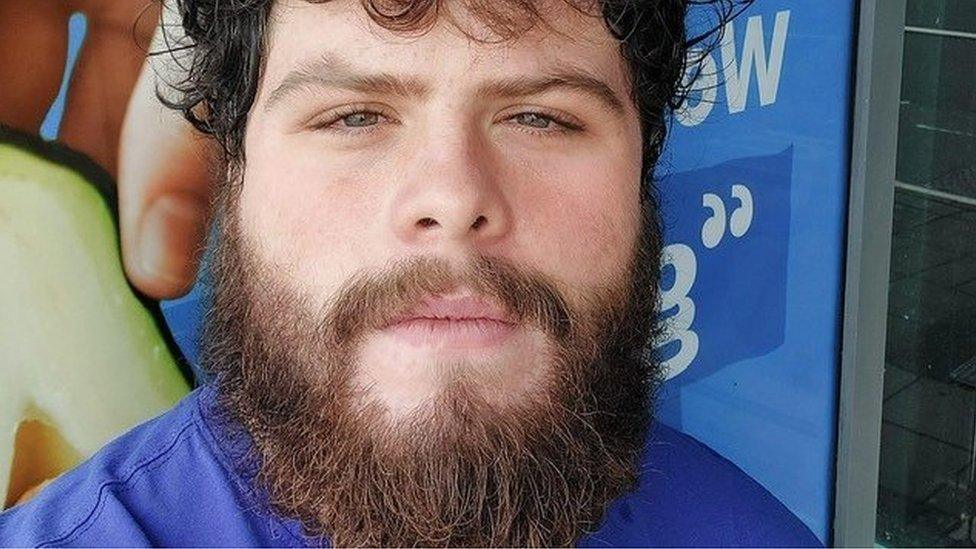
Jake Davison, 22, killed five people before turning the gun on himself
The latest government statistics, published in March 2021, show that 97% of the 156,033 firearms certificates in the UK have been issued to men.
This is a similar proportion to shotgun licences, with 94% of the 548,521 certificates having been issued to men.
The statistics also showed 306 firearms licences and 982 shotgun licences were revoked in 2020/21.
97%150,662 of the 156,033 firearms licences in the UK have been issued to men.
A National Police Chiefs' Council spokesman said: "Any individual who held a firearms licence, which was then revoked, would need to reapply for a new licence.
"Applicants should be fully aware that the reasons a licence was revoked are recorded, and are considered as part of any new application.
"The legal process for anyone seeking a new licence is explicitly defined, and domestic abuse is one of the most serious factors taken into consideration in assessing an application."
The Metropolitan Police, the UKs largest force covering a population of about nine million people, returned 15 previously revoked gun licences in 2020/21.
It said six of these were returned because the licence holder successfully appealed their original decision to revoke in court.

Gun licences in the UK
The UK has some of the tightest gun controls in the world.
The vast majority of gun certificates are issued to people for sport, wildlife management and pest control.
In order to get a licence returned any previous criminal convictions, even spent convictions, must be declared.
Two people, of "good character", who have known the person for at least two years but are not related, also have to be referees.
Numerous forces, including Norfolk and Suffolk, told the BBC that they would need to be satisfied a person was not a danger to public safety before re-issuing a previously revoked licence.

The data provided to the BBC by all forces does not reveal the outcome of the reasons for revocation, for example whether charges were brought.
Seventeen reasons for guns originally being revoked were provided by the police forces.

The reasons also included motoring offences, mental health issues, animal cruelty and suspected burglary.
Eight forces refused to provide the original reason why 34 of the 164 returned licences were revoked as they said it might identify individuals.
Ten police forces did not return any guns in the three-year period to individuals who had previously had them revoked.
Police Scotland told the BBC it recorded reasons differently to England and Wales, but the 13 licences that they had returned were originally revoked for a "danger to safety or the peace".
Northern Ireland's force also said it revoked three licences for public safety reasons.
The Plymouth shooting led to some changes in the law introduced in November.
All gun licence applications must now be accompanied by a medical document signed by a practicing doctor.
The applicant's social media, financial history and any domestic violence history is also reviewed.

Follow BBC South on Facebook, external, Twitter, external, or Instagram, external. Send your story ideas to south.newsonline@bbc.co.uk, external.
- Published9 December 2021
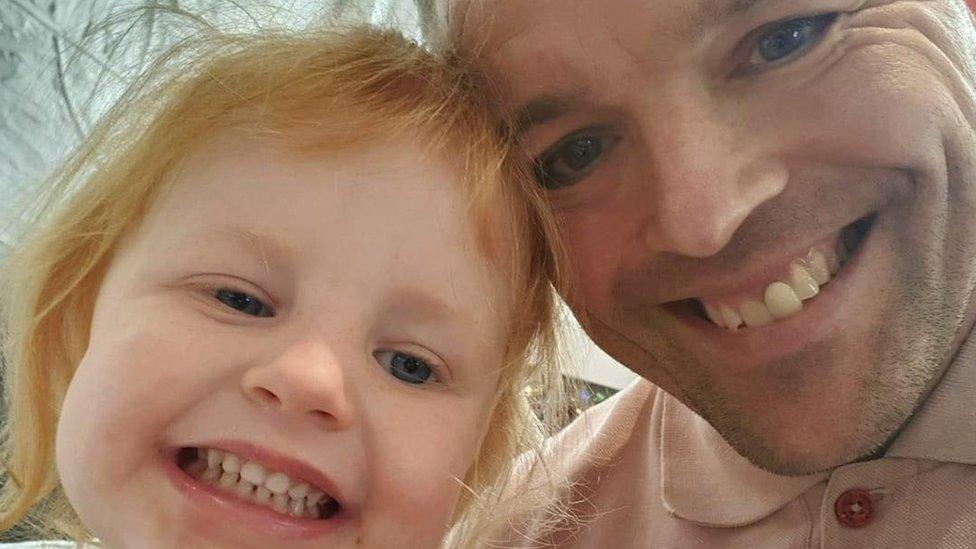
- Published17 September 2021
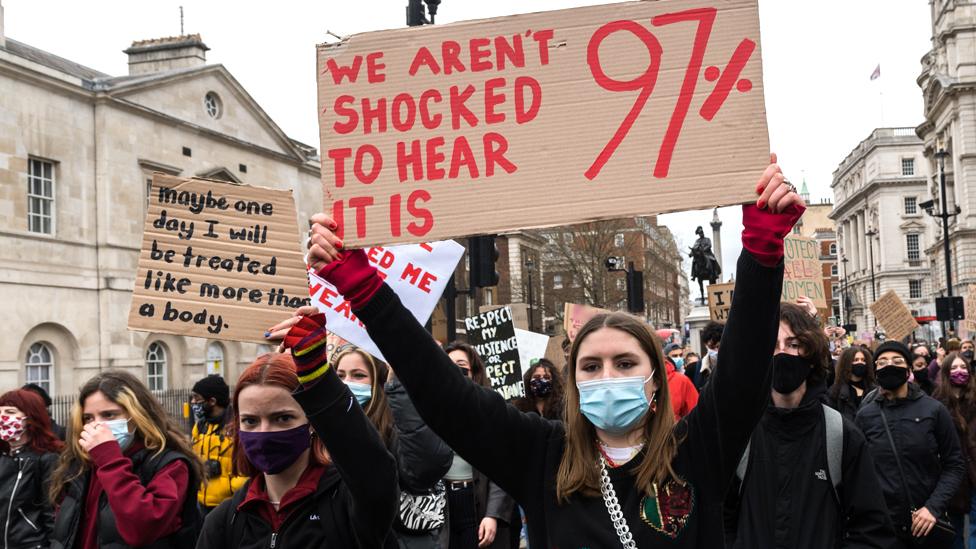
- Published13 August 2021
